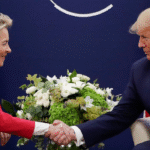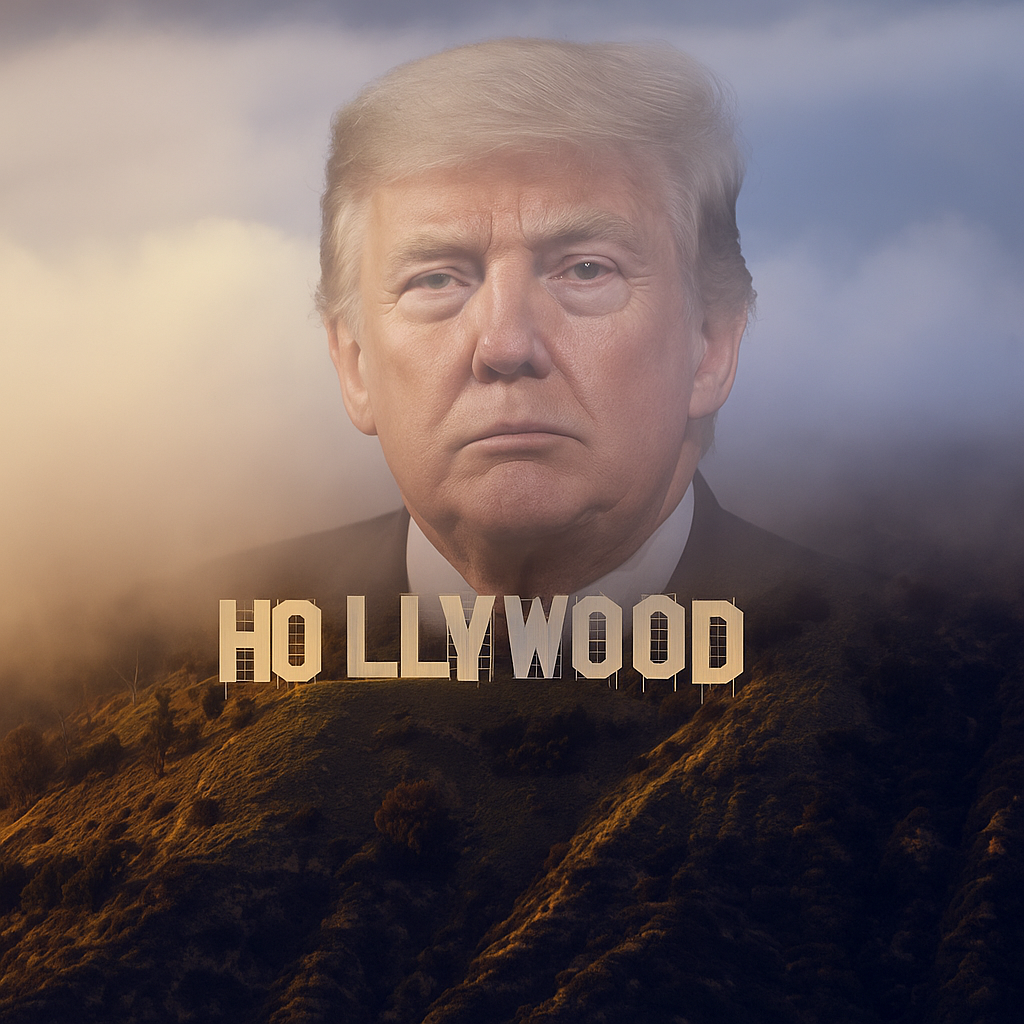U.S. President Donald Trump reaffirmed on Sunday that his trade and tariff strategy centers on advancing industries like defense, semiconductors, and artificial intelligence. Speaking to reporters at Morristown Municipal Airport in New Jersey, he stressed that these policies aim to strengthen the U.S. industrial base rather than support the garment sector.
“We’re not looking to make sneakers and T-shirts,” Trump said. He backed Treasury Secretary Scott Bessent’s recent remarks, which downplayed the importance of maintaining a large textile sector in the U.S. economy. Although Bessent’s statement drew sharp criticism from the National Council of Textile Organizations, Trump remained firm. “We want to make military equipment. We want to make big things. We want to do the AI thing,” he added.
Trump:“Tanks, Not T-Shirts” Defines Policy Priorities
The phrase “Tanks, Not T-Shirts” now encapsulates Trump’s industrial agenda. Instead of competing in low-cost, high-volume manufacturing, he believes the U.S. should invest in producing critical goods like chips, AI technologies, and military hardware. These, he argued, are the cornerstones of long-term national strength.
Trump also emphasized that garment production can be handled more efficiently in other countries. By outsourcing such manufacturing, the U.S. can focus its resources on innovation-heavy sectors that drive future growth.
Despite Trump’s push, industry groups have voiced concerns. The American Apparel & Footwear Association (AAFA), for example, warned that additional tariffs could harm domestic businesses. Steve Lamar, president of the AAFA, explained that the apparel sector already faces some of the highest tariffs in the country.
“More tariffs will only mean higher input costs for U.S. manufacturers and higher prices for working families,” Lamar said. He also noted that low-income consumers, in particular, would bear the brunt of the cost increases caused by these policies.
Tariff Threats Fuel Global Trade Tensions
Alongside his domestic agenda, Trump reignited trade tensions with fresh tariff threats. He proposed a 50% levy on goods from the European Union and suggested a 25% tax on imported iPhones. While these declarations shook global markets, Trump later extended the EU tariff deadline to July 9, providing more time for negotiations.
According to Trump, tariffs are not merely punitive—they are tools designed to attract investment and rebuild America’s manufacturing ecosystem. This approach, he claims, reduces reliance on foreign supply chains and supports national interests.
Ultimately, Trump’s “Tanks, Not T-Shirts” message aims to connect with working-class Americans disillusioned by years of industrial decline. He campaigned on manufacturing revival in both 2016 and 2024, promising to bring jobs and factories back to U.S. soil.
Now, by focusing on strategic sectors like defense and technology, Trump hopes to reshape the country’s industrial identity. His vision of “buying American” goes beyond T-shirts and socks—it’s about producing the next generation of innovation and strength with semiconductors, AI, and tanks.











